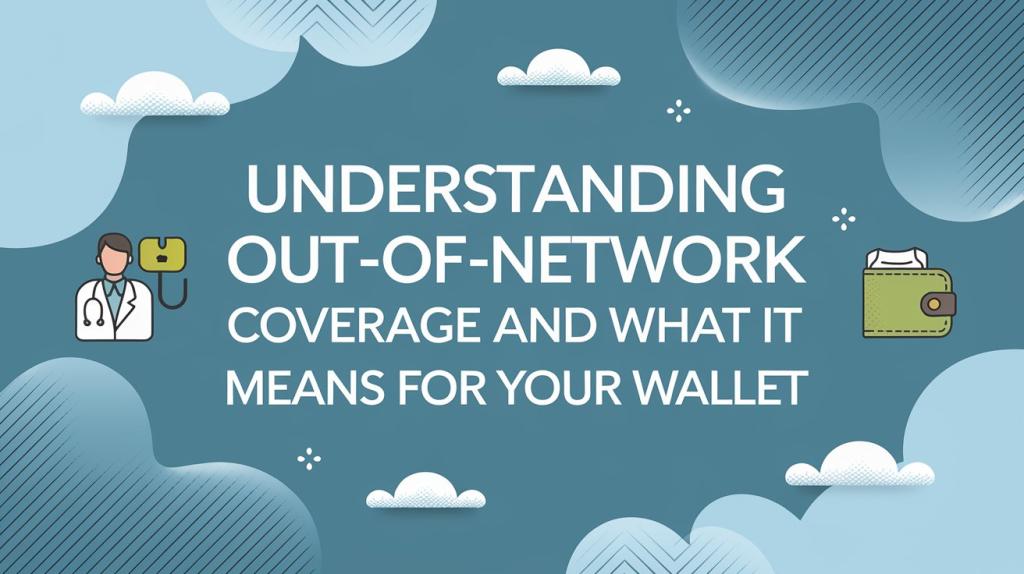Understanding Out-of-Network Coverage and What It Means for Your Wallet
Navigating the complex world of health insurance can be tricky, particularly when it comes to understanding its implications for out-of-network coverage. From emergency situations to seeking specialist treatment, using providers outside your insurance network can have significant financial repercussions. This blog aims to demystify out-of-network coverage, explain its workings, and offer helpful practical advice for effectively navigating it.
What Is Out-of-Network Coverage?
Health insurance providers typically work with a network of contracted healthcare providers (doctors, hospitals, and other medical specialists) that agree to offer services at predetermined rates; these providers are considered "in-network."
By choosing an out-of-network provider, you are choosing someone who does not have a contract with your insurance company. This could happen either intentionally if you prefer a specific specialist or unknowingly during emergencies. Because these providers do not agree to the rates set by your insurer, care costs tend to be significantly higher.
Out-of-Network Care Can Affect Financial Stability
Financially speaking, going out-of-network can have an immense financial implication. Here's why:
- High Out-Of-Pocket Costs: Insurance providers generally only cover part of the expense associated with out-of-network services, so you may be required to pay higher deductibles, coinsurance, or even full service costs upfront.
- Balance Billing: Non-network providers may bill you for the difference between their charges and what your insurance allows, resulting in unexpectedly large bills.
- Lack of Coverage: Some insurance plans, like Health Maintenance Organizations (HMOs), may not cover out-of-network services except in emergencies, leaving you to bear all costs.
Exceptions to the Rule
There may be instances in which out-of-network care could still be covered:
- Emergency Situations: Under federal law, insurance plans must cover emergency services at in-network rates regardless of which provider they use.
- Continuity of Care: Some plans provide continuity of care, allowing treatment at in-network rates for an interim period if a provider leaves your network.
- Referrals and Authorizations: Your insurance may allow out-of-network care if no suitable provider in their network is available.
How to Navigate Out-of-Network Coverage
Understanding and taking proactive steps can help reduce the financial strain of out-of-network care. Here's how:
- Get To Know Your Insurance Plan: Review your policy to understand out-of-network coverage, deductibles, coinsurance, and pre-authorization procedures.
- Explore Provider Networks: Verify whether your provider is part of your insurance network before scheduling appointments.
- Discuss Costs: Negotiate costs with out-of-network providers, who may offer payment plans or discounts for out-of-pocket payments.
- Request Gap Exemption: Ask your insurer for a gap exception if no in-network provider meets your treatment needs.
- Carefully Review Bills: Check for errors in your medical bills and Explanation of Benefits statements. Report discrepancies immediately.
- Appeal Denied Claims: If coverage is denied, appeal with supporting documentation like medical records or provider letters.
- Consider Supplemental Insurance: Plans like gap or travel insurance can help cover out-of-network expenses.
Preparing to Avoid Out-of-Network Costs
One way to protect against unexpected out-of-network medical costs is through planning. Research your options, choose providers carefully, and remain aware of your insurance coverage. Doing so can enable you to make confident healthcare decisions and prevent unexpected medical bills.
Out-of-network coverage is an esoteric yet essential aspect of health insurance. By understanding its implications and preparing effectively, you can minimize financial strain and prioritize what matters most: your health.










